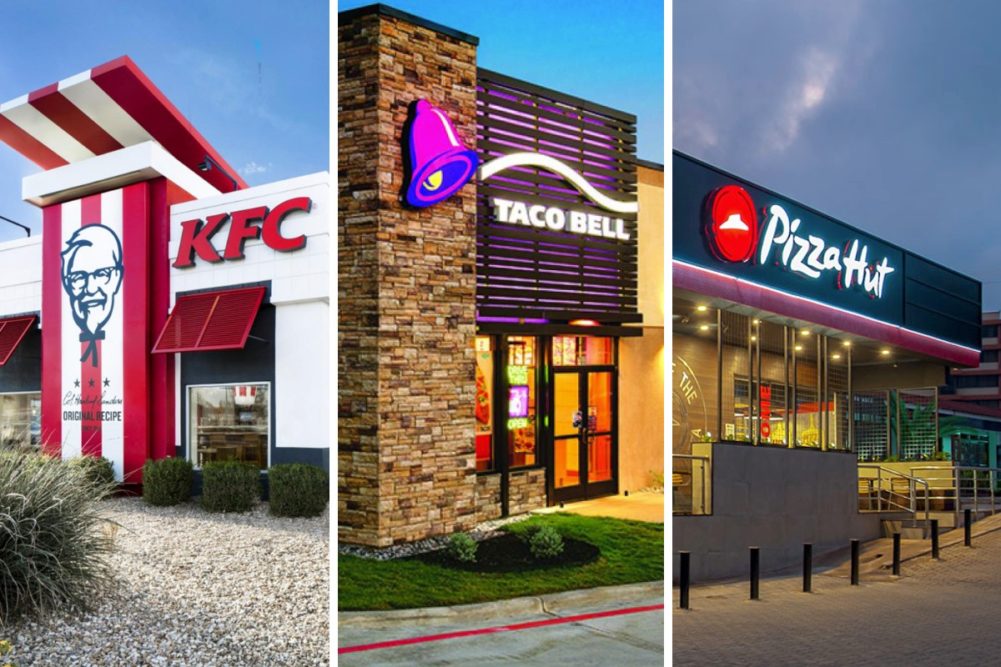LOUISVILLE, KY. — The coronavirus (COVID-19) crisis weighed heavily on first-quarter results at Yum! Brands Inc., despite momentum across its KFC, Pizza Hut and Taco Bell brands during the first two months of the year.
Net income in the first quarter ended March 31 totaled $83 million, equal to 27¢ per share on the common stock, down 68% from $262 million, or 86¢ per share, in the same period a year ago.
Revenues of $1.26 billion were up slightly from $1.25 billion. In constant currency, worldwide system sales were down 3%.
Pizza Hut and KFC were hit hardest by the pandemic, with systemwide sales down 9% and 2%, respectively. Sales at Taco Bell grew 4%.
Global same-store sales were flat in the first week of March but declined rapidly the following week as more stores closed and government mandates tightened. With approximately 20% of locations shuttered, same-store sales across brands fell more than 30% on average during the second half of March.
“The number of units that were closed at any one point looks like it bottomed at 11,000,” said David Gibbs, chief executive officer and director at Yum! Brands, during an April 29 conference call with analysts.
Sales have trended better in the second part of April, with more than 1,000 stores reopening, he said.
The industry-wide shift to digital and delivery has accelerated trends that already were underway at KFC and Pizza Hut.
“We set a digital sales record in the Pizza Hut US business, doing more sales on a typical Friday than we did on either of the last two Super Bowls, which held the previous record,” Gibbs said.
Digital mix at KFC increased throughout the quarter. Forty percent of digital sales came through kfc.com, which launched late last year.
“This three-month period we're in right now is basically going to have three years' worth of changes to our businesses,” Gibbs said.
Declines in Taco Bell’s breakfast and late-night businesses were offset by strength in drive-thru. Free delivery, available on orders of more than $12 through Grubhub, also provided a boost.
“The breakfast business is impacted when people aren't on the roads going to work,” Gibbs said. “The late-night business is obviously impacted as people aren't out in bars, theaters and things like that. Taco Bell had the impact from that, but their core business, the drive-thru business, is perfectly designed for this time and they are embracing the delivery and carryout model.”


